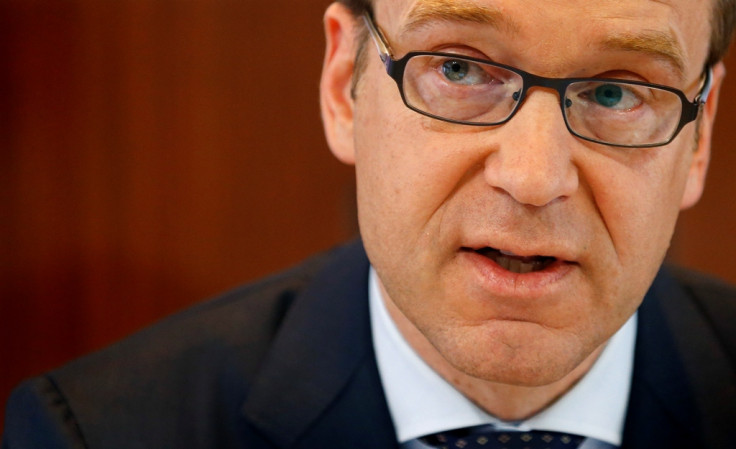Eurozone Not in Deflationary Cycle, Says ECB's Jens Weidmann

The eurozone is not in a deflationary cycle and the European Central Bank (ECB) should not overreact to a slowdown in inflation triggered largely by cyclical factors, which should prove temporary, Bundesbank president Jens Weidmann has said.
The German central bank chief said that about two-thirds of the drop in eurozone inflation to 0.7%, the lowest since the bloc's economy was deep in recession in 2009, could be attributed to falling energy and food prices.
He said consumers were not deferring purchases in anticipation of falling prices and the bank expected a recovery to gradually push inflation back up.
However, Weidmann, also a member of the ECB's governing council, warned of the risk of running very low rates for a prolonged period.
The ECB is scheduled to meet on 3 April, when the bank is expected to leave rates on hold, according to a Reuters poll, despite February inflation at an uncomfortably low 0.7%.
"With regard to the rate of inflation at the moment, the euro area is not in a self-enforcing downward spiral of price decreases, which is nominally the definition of deflation," Weidmann told a conference in Berlin on 29 March.
"This is not to say that a protracted period of lacklustre growth will not be an issue for policymakers," he said, noting that he supported further structural reforms within eurozone member states and an unplugging of banks' credit provisioning to the real economy.
"It is obvious to me that extremely low rates are a risk to financial stability," he said, adding that companies may then get used to lower rates.
"Eventually this might mean that a necessary structural change fails to take place," he said, noting that this could pave the way for the next financial crisis.
"Risks to financial stability may ultimately culminate in risks to price stability," he added, according to Reuters.
Negative Interest Rates
Weidmann's comments follow remarks which investors construed as a softening of long-held German resistance to more radical action to buttress growth.
Weidmann surprised financial markets earlier by saying that negative interest rates were an option to moderate euro strength. A negative interest rate is a rate so low that commercial banks would in effect pay the ECB to park their extra cash overnight.
While he did not rule out buying loans and other assets from banks to support the single currency bloc, he said there was no need to act for now.
The ECB's main lending rate to banks is currently at a record low 0.25%. A separate deposit rate set by the ECB for overnight funds parked at the central bank has been at zero for about two years.
© Copyright IBTimes 2025. All rights reserved.






















